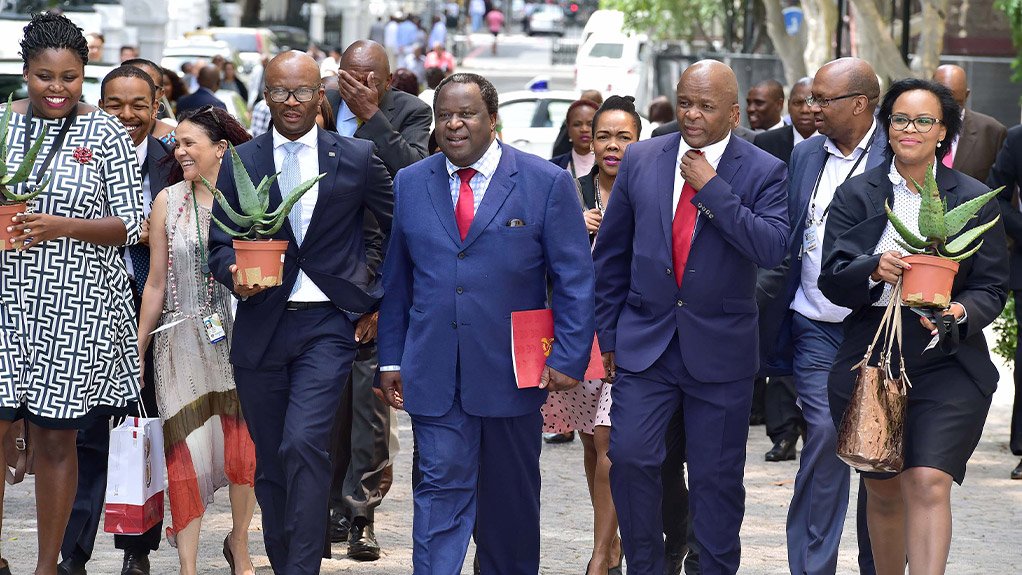/ MEDIA STATEMENT / The content on this page is not written by Polity.org.za, but is supplied by third parties. This content does not constitute news reporting by Polity.org.za.
Finance Minister Tito Mboweni will deliver his Mid-Term Budget Policy Statement in Parliament this week.
Fiscal planning for the security of South Africa’s sustainable, reliable and cost-effective energy supply cannot ignore the looming, hidden costs of hydropower from the Democratic Republic of the Congo (‘DRC’). The tainted Inga 3 a hydro project in the DRC was included in the Cabinet-approved version of the Integrated Resource Plan (IRP) last week.
South Africa’s financial resources are already stretched to breaking point. But keeping the lights on at Eskom in the short-term should not come at the long-term cost of ignorance about Inga 3.
The costs of Inga 3 are expected to be crippling for South Africa.
The IRP envisages Inga 3 hydropower to South Africa coming on-line in 2030. To date, there has been little to no engagement with the real and utterly unaffordable costs of Inga 3 for the South African fiscus, for ordinary South Africans, and for the Congolese communities that this mega project will impact.
On top of the existing burden imposed on taxpayers to bail out Eskom, the financial outlay required to construct the transmission line alone will cost South African consumers an estimated R4.3 billion per year. Additionally, transmission losses over such a long distance from the DRC to South Africa will be significant, making actual delivery of the expected 2500 MW highly unlikely.
In further contrast to least-cost scenario commitments, power imported from the DRC will cost South Africa R400 million more than domestic power generation per year. This is without taking into account the likely increase in true cost after factoring in the cost overruns typical to mega projects of this magnitude.
In November 2018, the Portfolio Committee on Energy recommended that hydropower from Inga 3 was not worth including in the IRP due to the excessive costs of the project and the uncertainty about its viability.
That recommendation appears to have been ignored.
Inga 3 was initially expected to begin providing power in 2020. This date has been moved back to 2024, with recent accounts shifting the date further back to 2030. Progress on Inga 3 has stalled repeatedly already, with no sign that the significant financial, governance, and logistical hurdles have been cleared.
By continuing to include Inga 3 in South Africa’s energy mix, the South African government is simply kicking the renewable energy can down the road instead of creating a truly robust energy plan.
The IRP's continued reliance on tainted, unaffordable imported power from Inga 3 jeopardizes South Africa's future energy supply. Minister Mboweni must begin by justifying the cost in light of South Africa’s fiscal burden, and account to the public for where the funding will come from.
Issued by International Rivers
EMAIL THIS ARTICLE SAVE THIS ARTICLE ARTICLE ENQUIRY
To subscribe email subscriptions@creamermedia.co.za or click here
To advertise email advertising@creamermedia.co.za or click here











